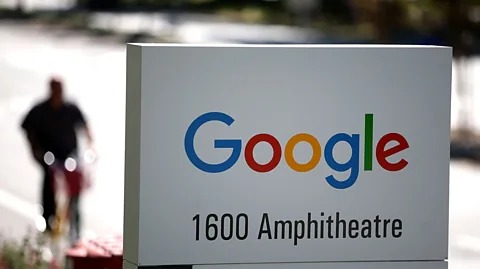How Google search could decide the 2016 US election
 Getty Images
Getty ImagesThe best recent long reads in science and technology, including how Google has the power to change elections and the late Oliver Sacks’ last article.
Google has great power to control elections through search results. Google’s algorithms “can easily shift the voting preferences of undecided voters by 20% or more” by assigning higher and lower search rankings to candidates and issues. Obviously we should fear deliberate manipulation by Google or a rogue employee; but Google is already swaying our elections in ways that nobody fully understands simply by being there. (Robert Epstein, Politico, 2,680 words)
Psychiatry | Why can’t we stop for death
Fear of death dominates human psychology, claims a resurgent school of psychiatry drawing on the works of Ernest Becker. The thesis is an elegant one; and it is true that “awareness of death, more than anything else, differentiates human beings from other animals”. It is also true that denial of death is a powerful force in human life. But not everybody is terrified of dying. “Many human beings have welcomed their mortality.” (John Gray, New Statesman, 2,100 words)
Psychology | I am not a story
Life is not a story, and not everybody experiences life as a story. Indeed, it is hard to say whether those who claim to experience life as a story actually do so, or whether they are surrendering to a clumsy metaphor. It is equally possible to experience life as something that begins again every day, every hour, every second; and the past as remembered fragments which are individually useful, but with no collective significance. (Galen Strawson, Aeon, 3,275 words)
Neuroscience | Urge
A last article from the late Oliver Sacks: The case-history of Walter B., an “affable, outgoing man of 49”, who had opted for brain surgery to control his epilepsy. The epilepsy went – but ravenous cravings for food and sex took its place. “The inevitable happened, and federal agents came to Walter’s house to arrest him for possession of child pornography.” Would a court convict him, knowing his condition? The answer turned out to be: yes. (Oliver Sacks, New York Review Of Books, 1,500 words)
Value | We hate cheap things
To say that we value things because they are expensive is almost a truism; but the logic of it is far from obvious. When pineapples were expensive and rare they were served to kings and celebrated in art – a sculpted pineapple tops the south tower of St Paul’s Cathedral. Now that pineapples are cheap, they are “one of the world’s least glamorous fruits”. Yet they still taste the same. What do we gain from devaluing the things we can afford? (Alain de Botton et al., The Book Of Life, 3,250 words)
Economics | Bitcoin zero-ville
Non-technical argument that Bitcoin is failing because more competition among miners is producing lower returns – “a race to zero.” It made sense to be in on the early stages of Bitcoin and riding the curve upward; but nobody was costing in the eventual need to maintain the mature system. Limiting abuse will require at least some of the structures of conventional finance; and nobody will do that for free. (Izabella Kaminska, Dizzynomics, 1,480 words)
Ageing | The future is old
The ageing of Western societies is “one of the greatest success stories” of modern times. Life expectancy in rich countries has increased by 30 years during the past century. Japan, France and Italy are already “super-aged”, meaning that over-65s make up more than one-fifth of the population. By mid-century most countries will be super-aged. If that is a problem, then on balance it is the right problem to have. (Brigitte Miksa, Project Syndicate, 700 words)
Consumerism | The power of free markets
Markets are not particularly efficient at providing given goods, they are efficient at providing ideas, surprises, choices. “It’s not just that we don’t know what we want: we don’t even know why we value the things we already have. Most people think they own a dishwasher to clean crockery. But perhaps the greatest value you get from owning a dishwasher is that it gives you somewhere to keep dirty dishes out of sight.” (Rory Sutherland, Spectator, 635 words)
For more articles worth reading, visit The Browser. If you would like to comment on this, or anything else you have seen on Future, head over to our Facebook or Google+ page, or message us on Twitter.
